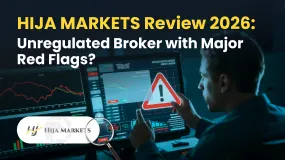Abstract:The foreign exchange market is one of the most tempting places to make “easy” money for many. In comparison to the stock market, the forex market has a lower barrier to entry and its longer operating hours provide more flexibility and accessibility.

The million-dollar question that most newbie forex retail traders often have is “how much money do we need to begin forex trading?”
I hate to break it to you but there is really no specific answer. This is equivalent to demanding a straight-up answer as to how much food one should eat to get full.
Some forex brokers require a minimum initial deposit of only $20-50 to open an account and start trading. If you need to get started quickly to get your feet wet in forex trading as a newbie, it is recommended to start small.
Some might argue that a small capital might be exposed to more risk and it is hard to generate a significant number of returns which is not enough to compensate for the time you spend on trading. This is true. However, it is also equally important to remember that there are always two sides to a coin. Ultimately, it boils down to how good is your skill and how well-calculated is your risk management system. It is also crucial to remember that compounding works wonders as long as you are skilled enough.
To give you a better idea, a trader's capital requirements are influenced by a variety of factors. These elements are as follows:
The chosen broker
The trading account type and its leverage
The lot size that the trader intends to use to open positions.
The trading strategy and risk management system that the trader intends to employ
Set amounts do not assist you in determining the bare minimum required for your trading goals and style, life circumstances, or risk appetite. You should be aware of the risks associated with forex trading and attempt to mitigate them.

The amount of capital that is appropriate for another trader might not be appropriate for you. You must perform your own calculations to ensure that you invest the appropriate amount of money, not just mathematically but also emotionally. You do not want to invest too little that you do not take forex trading seriously because that is a bad habit to develop. Likewise, you do not want to invest too much money that it starts to create stress and fear that could cloud your judgment during trading.
For Forex beginners, it is always a good idea to open a demo account with the amount of capital that you have calculated is appropriate for you and try to manage it as you intend to once you open a live account. This will allow the trader to be confident in the capital which you are going to be investing.











